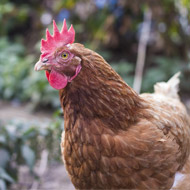WHO calls for vigilance as H5N8 spreads

“Countries reporting outbreaks in birds need to remain vigilant as avian influenza viruses can transmit from animals to humans.”
The World Health Organisation (WHO) is calling for greater vigilance and surveillance in detecting human cases of avian influenza, as the H5N8 strain continues to spread in birds across Europe.
While no human cases of H5N8 have been reported to date, experts say the possibility of transmission cannot be excluded.
Dr Caroline Brown of WHO/Europe, said the fact that there have been no human cases so far “does not mean this cannot happen” as similar subtypes have caused human disease in the past.
“Countries reporting outbreaks in birds need to remain vigilant as avian influenza viruses can transmit from animals to humans,” she added.
H5N8 has been reported in wild birds and domestic poultry in around 24 countries in the WHO European Region since last June. At least three of these countries have confirmed outbreaks in the past two weeks.
The risk of bird-to-human transmission is relatively low, according to WHO, but it is important to remain vigilant. In most human cases of avian influenza, the virus was contracted following contact with infected poultry or contaminated environments, such as live poultry markets.
In areas with outbreaks of avian influenza in birds, people that are considered most at risk are those in direct contact with diseased birds and poultry, their carcasses, and/or their environment.
WHO advises members of the public to avoid contact with birds or other animals that are sick or found dead. These should also be reported to the relevant authorities.
Birds or carcasses should not be touched with bare hands. If a carcass must be touched, wear gloves or use an inverted plastic bag to collect the animal, then wash hands thoroughly with soap or a suitable disinfectant.
Good food safety and food hygiene practices should also be followed, including cooking food thoroughly at sufficiently high temperatures.



 The Federation of Independent Veterinary Practices (FIVP) has announced a third season of its podcast, Practice Matters.
The Federation of Independent Veterinary Practices (FIVP) has announced a third season of its podcast, Practice Matters.